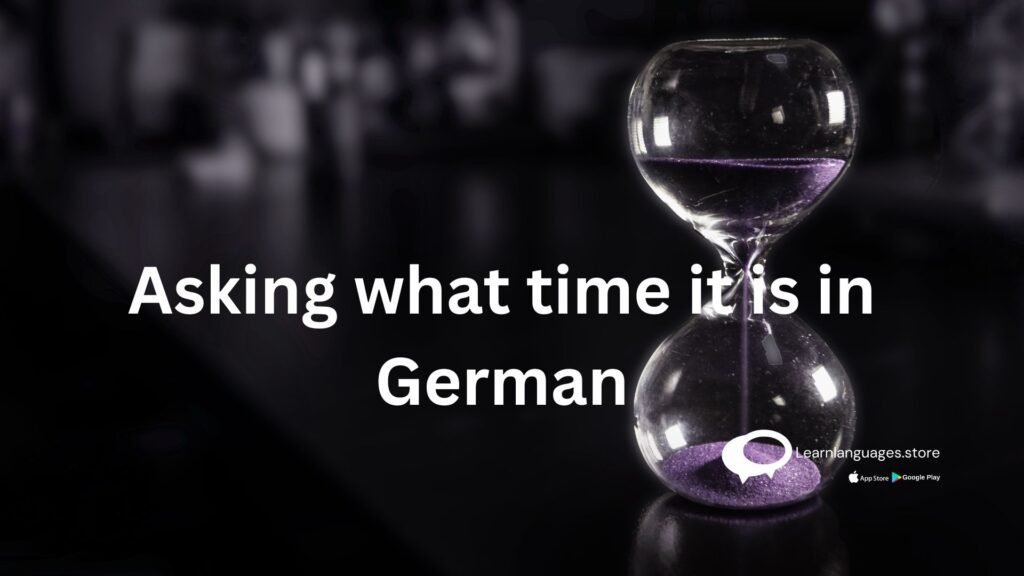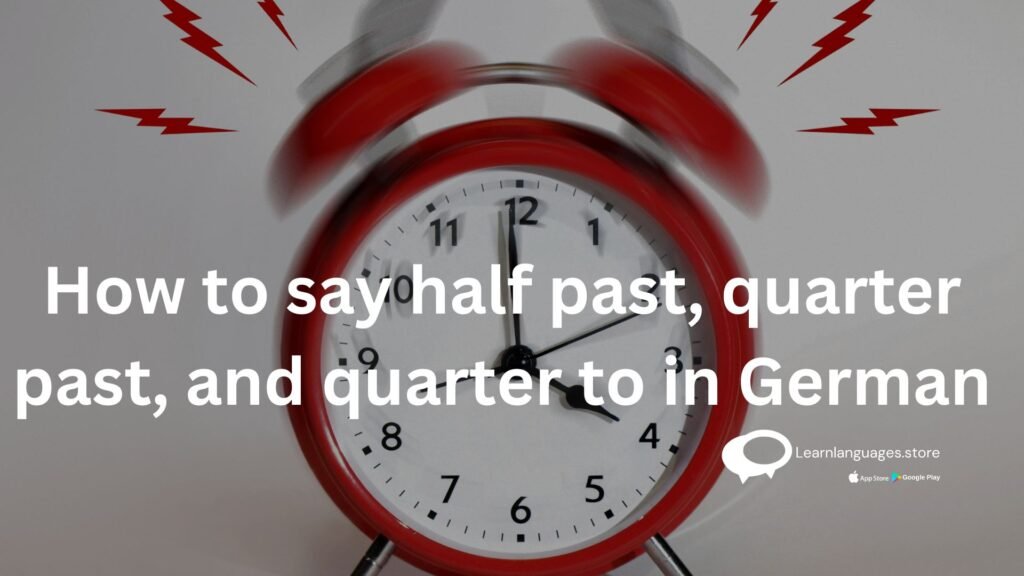Telling time in German:  An essential guide on how to tell time in German
Telling time in German:  An essential guide on how to tell time in German
In German, the most common way to ask for the time is ÔÇťWie sp├Ąt ist es?ÔÇŁ which translates to ÔÇťHow late is it?ÔÇŁ ItÔÇÖs rarely ÔÇťWhat time is it?ÔÇŁ and certainly never ÔÇťHow early is it?ÔÇŁ Rather than simply asking for the time, as most other languages do, German speakers appear to be haunted by the imminent risk of being too late. Learn how to tell time in German to develop a sense of punctuality ÔÇô a key virtue of German people.
Estimated reading time: 5 minutes
Asking someone for time is a great way to start a conversation. So, if you find yourself in a German-speaking environment and want to practice your German, knowing how to tell the time in German will be a huge help. Simply ask anyone, ÔÇťEntschuldigung, wie sp├Ąt ist es?ÔÇŁ and you will have a perfectly legitimate reason to strike up a conversation in German ÔÇô even with a stranger.
Once you know how to tell the time in German, you will be able to understand some amusing time-related German expressions and idioms.
ItÔÇÖs difficult to escape time because it never stops. When you are learning a language, you will come across situations where you need to tell the time. If your coworker schedules a meeting, your friends want to meet you for lunch, or you are simply wondering when the grocery store will close, time is an unavoidable factor in all aspects of daily life. So mastering it in the language you are learning is advantageous.
To begin, it is essential that you first learn how to count in German. You will need the numbers 1 to 24, because Germans use a 24-hour format, also known as military time. Once you have learned these, you can add the German word ÔÇťUhrÔÇŁ [u╔Ö╠»/] to the respective number to get the full hour.
Asking what time it is in German

The German word for time is ÔÇťZeitÔÇŁ [t═ísa╔¬╠»t] which has made its way into the English language as part of the noun ÔÇťzeitgeist,ÔÇŁ which is commonly used to describe the mood of a particular time period. As a result, many English speakers are familiar with it. Surprisingly, there is no German way of asking for the time that includes the word ÔÇťZeit.ÔÇŁ
If you ask ÔÇťWie ist die Zeit?ÔÇŁ most German speakers will understand, but you will not hear a native speaker use that expression. If you want to know the time, you can ask ÔÇťWie viel Uhr ist es?ÔÇŁ which translates to ÔÇťHow many oÔÇÖclock is it?ÔÇŁ but itÔÇÖs more common to ask ÔÇťWie sp├Ąt ist es?ÔÇŁ [╩ői ╩âp╔Ť╦Ét ╔¬st.
How to say half past, quarter past, and quarter to in German

From 11 oÔÇÖclock to twelve oÔÇÖclock in stages of 15 minutes, it is like:
- ÔÇô Elf Uhr
- ÔÇô Viertel nach elf
- ÔÇô Halb zw├Âlf
- ÔÇô Viertel vor zw├Âlf
- ÔÇô Zw├Âlf Uhr
German time is measured in years, months, weeks, and days, as is all time. Each day begins in the morning (ÔÇťMorgenÔÇŁ) and ends in the evening (ÔÇťNachtÔÇŁ)
How to tell the exact time in German
In German, you name the hour first, followed by ÔÇťUhrÔÇŁ and the precise number of minutes. For the first twelve hours of the day, German uses the numbers 0-12 and then continues to count from 13 to 24 oÔÇÖclock for the second half.
This replaces AM and PM, so 1:07 pm becomes 13:07, pronounced: ÔÇťDreizehn Uhr siebenÔÇŁ. In Germany and Austria, a Doppelpunkt (15:07) separates the hours from the minutes, whereas in Switzerland, a dot (15.07) is used.

Frequently asked questions
Q. How do I ask ÔÇťhow longÔÇŁ in German?
A. How long is said as ÔÇťwie lang?ÔÇŁ in German.
Q. How do I tell the time in German for the military?
A. Military time counts the day in 24 hours, so 1-12 noon is the same as in English, but 1-12 after that is replaced by 13-24.
Q. What is the purpose of German military time?
A. Because there is no equivalent of the English a.m. and p.m., German speakers use the system known as military time. So, to be clear whether they are talking about daytime or nighttime, they use precise numbers ranging from 0 to 24.
Conclusion
We admit that not every German is always punctual but being on time is a big deal in German-speaking countries. Therefore, knowing how to tell the time in German is an important part of learning the language. ItÔÇÖs always something oÔÇÖclock, so you have plenty of opportunities to practice.
Learn Languages Store
Vashi,
Email: services@learnlanguages.store










